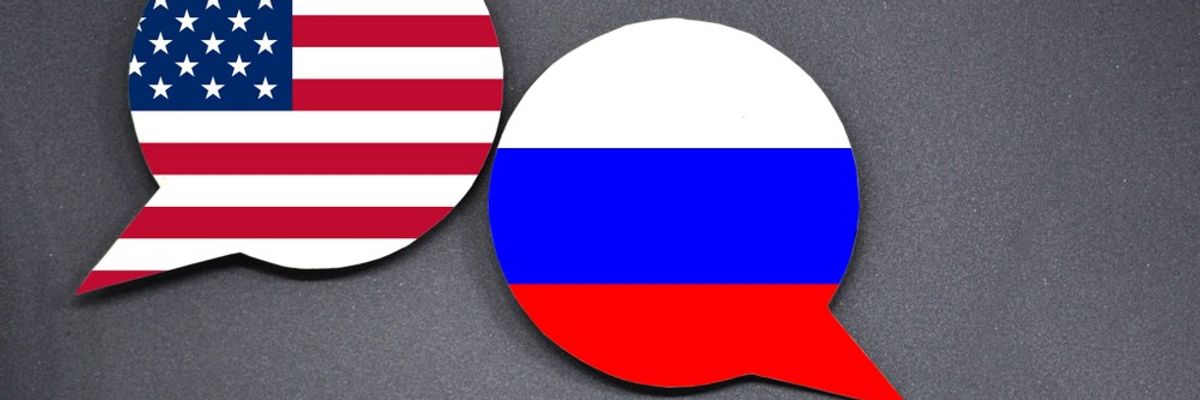NBC News reported this morning that a group of former U.S. government officials have held secret talks with “prominent Russians” here in the United States in order to lay “the groundwork for potential negotiations to end the war in Ukraine.”
The group included former diplomat and outgoing Council on Foreign Relations president Richard Haass, as well as former officials Thomas Graham and Charles Kupchan, who has written for Responsible Statecraft on the importance of diplomacy in the Ukraine conflict.
According to NBC, which was quoting “people briefed on the discussions,” the group met with Russian Foreign Minister Sergey Lavrov for several hours in New York in April.
This is a welcome step, even though there are no indications that the White House endorsed what I would call Track 1.5 diplomacy between the former U.S. officials and the Russians.
Still, it benefits the US and Ukraine in several ways. There are many misconceptions about diplomacy, which is often viewed as merely a give-and-take. Even worse, negotiations in the context of Ukraine have been erroneously treated as the start of a cease-fire.
This is opposed by many since Russia still illegally occupies large parts of Ukraine. A cease-fire under these circumstances, the argument goes, would give Moscow undue leverage in talks and an opportunity to regroup and take more Ukrainian territory.
But negotiations are not the beginning of a cease-fire. In most wars, fighting and talking goes on simultaneously. Instead, talks are needed — particularly Track II diplomacy — because they serve several purposes.
First, Track-II is intelligence gathering. As the fighting goes on, talks are needed to assess how the other side reacts to changing realities on the ground. Is their resolve weakening? Are they overconfident? What are they seeing that we are missing?
And how will they react to future hypothetical scenarios on the battlefield? Second, if we want to end the war, Track-II is needed to explore possible pathways to real negotiations and a lasting solution.
When real talks start, you don't want to go flying blind; you want to know as much as possible to maximize your chances of success. Track-II talks can prove crucial to that end.
In fact, even when official negotiations are ongoing, a back-channel is often needed to, in a more risk-free environment, test ideas and proposals. This is what happened in the diplomacy that led to the Iran deal, as I describe in detail in my book, "Losing an Enemy: Obama, Iran and the Triumph of Diplomacy." While official talks where ongoing between Iran and the P5+1 (the U.S., Germany, the UK, France, Russia and China), the U.S. still opened a back-channel to Iran in Oman to quietly address the most politically sensitive issues of the nuclear talks.
Third, you want to quietly signal potential openings on your end in order to encourage voices on the other side to push for greater flexibility on their end — which they likely won't if they believe it's a lost cause. But there has to be a there-there to justify such a risk.
But isn't this going behind the back of Ukraine? Not at all. First of all, Track II negotiators are not authorized to decide anything. They aren't negotiating. They are exploring ideas and gathering intel.
Second, the information they gather is of tremendous value to the Ukrainians — particularly if the Ukrainians aren't themselves in a position to engage in such talks right now. Ukraine benefits from more, not less, info.
If anything, the most valid critique is not that these talks are happening, but why they haven't happened earlier. Because all of the points listed here were equally valid a year ago.















